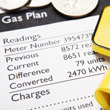

An estimated 4 million households in England are in fuel poverty, compared to 1.2 million in 2004, an independent report published today has shown.
Conducted by Professor John Hills of the London School of Economics, the report was commissioned to assess the current situation and advise government how to best tackle the problem of fuel poverty.
Far from being eliminated by 2016, as government had hoped, the report estimates levels of fuel poverty on a central projection reaching in the region of eight million.
"The continuing existence of fuel poverty, especially on the potential scale we outline in this report, is an obstacle to delivery of our carbon objectives as well as a source of health problems and a compounding of the problem of poverty," he said.
After looking at the definition of fuel poverty, targets, and the effectiveness of different policy interventions, Professor Hills has made it clear that he thinks fuel poverty is currently measured in a way that is both flawed and unhelpful.
He proposed a new way to define fuel poverty, by separating the extent of the issue (the number of people affected) from its depth (how badly people are affected).
He also advised that government should change its approach to fuel poverty measurement away from the current '10%' ratio indicator.
He suggests that households should be considered fuel poor if:
• They have required fuel costs that are above the median level; and
• Were they to spend that amount they would be left with a residual income below the official poverty line.
Professor Hills also shows how the impact of government policies can be assessed against this new proposed definition, showing the positive impact current government policies are having on tackling fuel poverty.
Secretary of State for Energy & Climate Change Edward Davey said: "Fuel poverty is a serious national problem and this government remains committed to doing all it can to tackle it and make sure that the help available reaches those who need it most."
Government is already tackling fuel poverty through a range of different schemes.
Assistance with heating and insulation measures is currently provided through policies like Warm Front and the Carbon Emissions Reduction Target, helping keep homes warmer and cosier through the year.
There is also direct support with energy bills for low income and vulnerable households through the Warm Home Discount scheme.
In the future the Green Deal Energy Company Obligation will be one of the key policies in this area.
Part of this scheme will specifically be designed to provide 'Affordable Warmth' to low income vulnerable households, through heating and insulation measures.
The Energy Company Obligation will ensure that support for the fuel poor remains and continues to be targeted at those most in need.
Government are set to consult on an alternative definition for fuel poverty later in the year and will announce the way forward on the Green Deal and ECO shortly.
If you'd like to keep up-to-date with the latest developments in the heating and plumbing industry, why not subscribe to our weekly newsletters? Just click the button below and you can ensure all the latest industry news and new product information lands in your inbox every week.